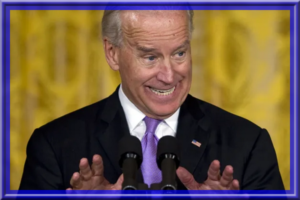
With the election of Joe Biden, there is increasing pressure for the United States to accommodate the global ambitions of the People’s Republic of China (PRC). Such a policy will weaken the strategic position of the United States and embolden the Chinese Communist Party (CCP), which seeks to transform the rules of international politics, and has demonstrated its willingness to employ coercive measures, including threats and open conflict, to achieve its aims.
As it has done for decades, and does so now with the Biden Administration, the CCP makes appeals for accommodation while emphasizing the need to turn away from more confrontational policies, like those most recently advanced by the Trump Administration. And as always, China’s words must be seen as tactical measures it deploys in pursuit of its objectives. Thus, it is only a matter of time before attempts to cooperate with China fail. However tempting, accommodation will not succeed for the stark reason that China does not want it.
Party Chairman Xi Jinping has made clear that what China seeks is world hegemony. And it is upon the pursuit of this hegemony that his power in the regime depends.
The CCP’s proclivity for expansion is fully expressed in Xi, who has vowed to achieve China’s “national rejuvenation” and to lead “world governance.” The reasons are straightforward: The party’s ideology requires it to smash capitalism and establish a new economic order based on socialism. To advance these aims, the PRC’s founder, Mao Zedong, employed the People’s Liberation Army to invade Tibet and Korea, launch a Sino-India border war, and participate in the Vietnam War. He fought for the leadership of the Third World and struggled with Soviet leader Nikita Khrushchev for leadership of the global Communist movement, and provided training, military and financial aids to Communist guerrilla insurgents throughout the world.
Mao’s successor Deng Xiaoping continued this ambitious plan by accelerating China’s modernization, including military modernization in the 1970s. In the process, he waged a border war to punish Vietnam, and ordered the murder of hundreds, even thousands, of protesters. After the Soviet Union’s collapse, a major leader from the CCP’s top echelon urged Deng Xiaoping to replace the Soviets in leading the Communist community. Deng argued that the time was not propitious, and—famously—urged the PRC to “hide our capabilities and bide our time.”
[Interesting Read]
See Also:
(1) US has something to learn from China about securing rare earths
(2) China’s New Type-039C Stealth Submarine: This Grainy Photo Says It All
(4) How China’s ageing population may topple its economic ambitions
(5) All Canadian universities must critically reassess their collaborations with China
Watch:
![]()


